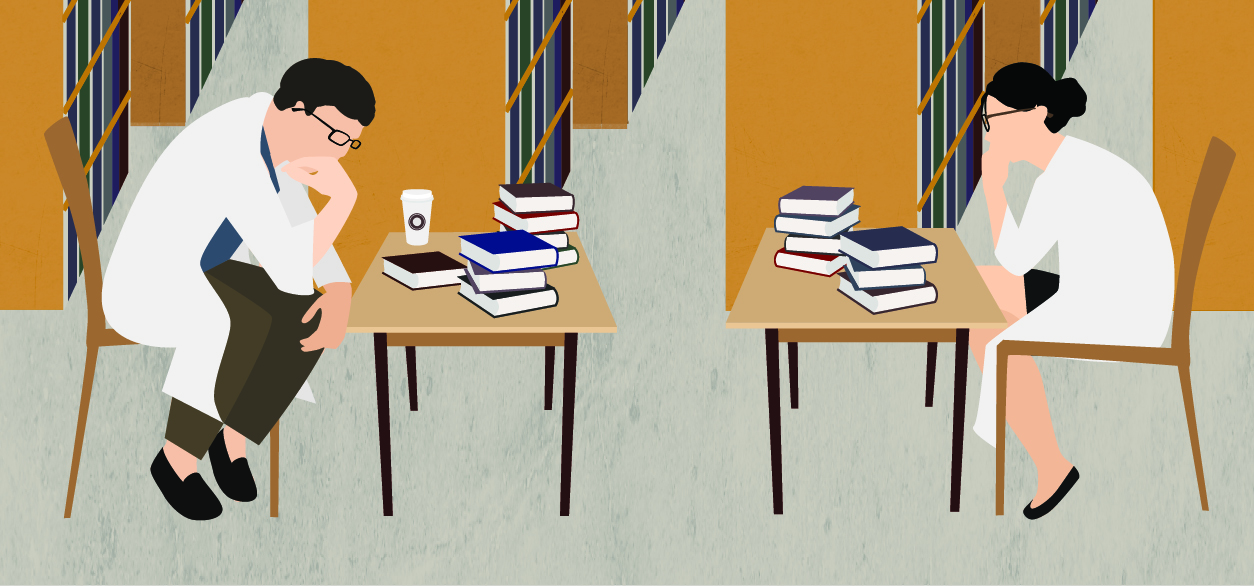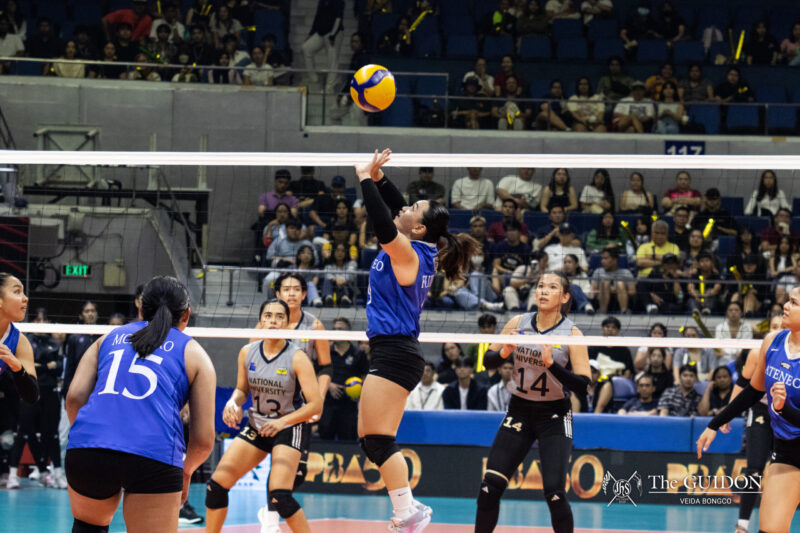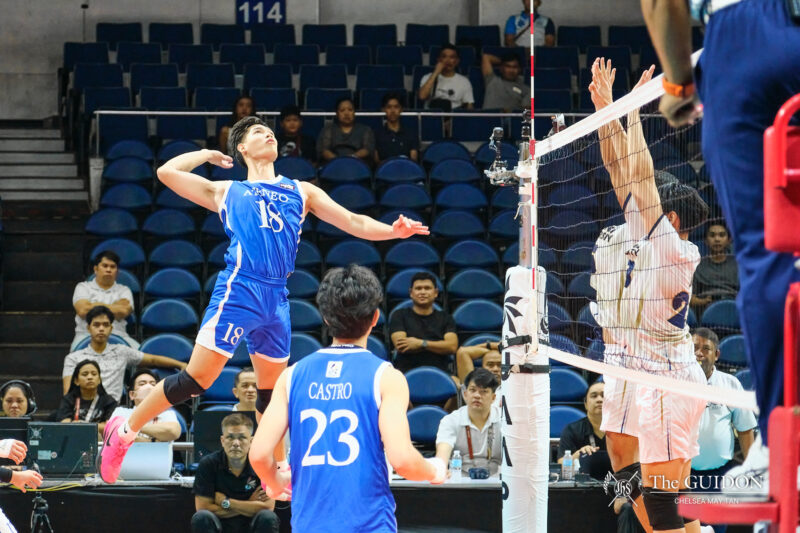For many students, a university professor is not much different from a high school teacher: Someone who cannot be divorced from the classroom. The professor shows up (or not), teaches (or not) for 40 minutes, gives tests and grades. The professor’s reputation lives or dies by his ability to be generous in grading, sparing in his requirements and engaging enough in his discussions. This is, in most Ateneans’ eyes, what separates the legends from the undesirables.
Teaching, however, is not the be-all and end-all of a professor’s work. A university is indeed an institution for learning, but that learning is not just limited to students. Professors learn too, by doing research.
Fundamentally, research is simply the act of adding to the body of knowledge. In the modern context, research connotes a thorough and highly-bureaucratic process of producing written output and getting it published. Although this is most associated with scientific journals, other works such as books and creative work are also considered research.
The importance of research in a university setting is affirmed by its inclusion in the Quacquarelli Symonds (QS) World University Rankings and the Times Higher Education (THE) World University Rankings. In the latter, research-related criteria and research citations account for 60% of a university’s score.
A matter of importance
In the past, however, research was not thought to be such an important facet of a university, says Rene Macahig, an assistant professor from the Chemistry Department. “[A university] was a place where students went to learn from their teachers and went out with degrees,” he says.
Part of the reason research is now being given more attention is that universities have begun to see its importance in the university context. In fact, according to School of Humanities (SOH) Dean Maria Luz Vilches, PhD, if there is no research, there is no university.
School of Social Sciences (SOSS) Dean Filomeno Aguilar, PhD contends that research is important in maintaining the quality of teaching in the university. “Otherwise, our teaching will just be borrowing from what others have already discovered,” he says.
Others see it as an intrinsic part of an institution’s responsibility to society. “It’s supposed to be one of the duties of a university to add to knowledge, [to be a] center of knowledge,” says School of Science and Engineering (SOSE) Dean Evangeline Bautista, PhD. “It’s a basic requirement, as far as I’m concerned.”
Aguilar adds that research in the university produces knowledge that is relevant to the local context. He emphasizes the need to conduct “systematic studies based on our needs and the circumstances in our country” in order to advance the welfare of the nation as a whole.
The state of research
Aguilar also says that research is gaining momentum, citing the increasing number of faculty members who are becoming interested in doing research. He also points out that more interdisciplinary research is being undertaken in the SOSS—a sign that researchers are becoming more ambitious and sophisticated in their work.
Macahig is similarly upbeat with his assessment. For him, the quality of research being conducted is competitive with other countries, naming several advanced fields in which the Ateneo has a research presence in. In his opinion, the Ateneo is one of the leaders in research in the Philippines.
Vilches, meanwhile, asserts that the existence of Ateneo-based, internationally-indexed journals such as Kritika Kultura and Budhi are signs of a strong research base in the humanities. She also believes that the large quantity of creative output of SOH likewise signifes a healthy community of research.
Bautista, on the other hand, says that SOSE, like the university as a whole, utilizes the limited resources as well as it can. However, she acknowledges a significant gap between the Philippines and its neighbors in terms of the quantity of research output.
According to SCImago Journal and Country Rank, the Philippines managed to publish 12,796 citeable papers from 1996 to 2007. In comparison, Thailand produced more than six times that amount in the same period. Singapore, the region’s academic powerhouse, turned in 144,653 papers—more than 11 times the Philippines’ output.
Bautista also raises the concern that the low number of citations Philippine publications receive also suggest a problem with the relevance of the research being done.
As institutions in a Third World country, Philippine universities suffer from a lack of funding for research. This rings particularly true for the natural sciences, which often demands the use of rare and difficult-to-handle equipment and materials. Macahig, for example, cites the expense and difficulty of importing chemicals from abroad for local use.
In other fields, however, resources are much less of a problem. “Resources are managable in the social sciences,” says Aguilar.
One of the things Macahig finds to be a shortcoming of research in the country is the lack of cooperation within the academe and between schools and industries. “We don’t do things in a vacuum,” he explains. “When we do research, we need to collaborate outside [Ateneo].”
Aguilar concurs, mentioning how India has managed to develop an indigenous method of doing a liver procedure by having several hospitals and universities collaborate. Their Philippine counterparts, on the other hand, floundered as result of the desire to be the first to successfully perform the operation.
By and far, however, the greatest challenge for research in the Ateneo seems to be the fact that the university is still shifting from a teaching-oriented university to a more research-oriented one. For History Department instructor Michael Pante, the Ateneo is proud to be a reputable teaching insitution. Although this is not an issue in itself, this reality has caused some issues with the culture within some faculties of the university.
“A lot of teachers are still in that ‘should I do research or not [mentality],’” he laments.
A manifestation of this orientation is the standard load of a professor: 30 units—roughly 10 classes—of teaching per year. This translates to a lot of paperwork and time, a fact Vilches considers to be a major hindrance to doing research work.
Aguilar stresses, however, that such a load is already light by Philippine standards and even on par with some of the smaller universities in the United States. Nevertheless, 30 units of teaching is still double the load most professors in more prestigious universities carry in a school year.
Improving research
The Ateneo, suffice to say, has not stood by idly while professors struggle under excessive teaching loads, financial constraints and a resistant culture. When asked how the university attempts to stimulate research, most of them give identical answers: Financial grants and mentoring.
To encourage professors to undertake research work, the Ateneo administration grants awards to the best research work by faculty. These are the self-explanatory Outstanding Scholarly Work Award and the Award for Scholarly Work with Most Social Impact. Apart from these, the school awards a cash incentive for professors who manage to get published in internationally-indexed journals, while smaller ones are given to those who publish in non-indexed journals.
Pante, however, contends that the Ateneo’s monetary incentives are biased towards English research articles. According to him, this happens because the incentives prioritize research that is published in international databases such as Scopus and Thomson Reuters. Additionally, he claims that the fact that shorter research articles are given the same monetary incentive as publishing a longer book clashes with the long-standing belief in the social sciences that good researchers in the field are defined by the books they publish.
Aguilar, on the other hand, asserts that such a hierarchal system is necessary to ensure that faculty members turn in works of good quality. However, he concedes that using such a basis for determining incentives is imperfect and “crude.” Nevertheless, he believes that such a standard is sufficient.
He also points out that databases such as Scopus and Thomson Reuters are not necessarily biased against non-English works. He cites Malay, a De La Salle University journal, as an example of a Filipino-language journal that is included in the Scopus index.
Mentoring, meanwhile, provides a substantial level of support for the individual researcher, allowing novice researchers to settle in the research life more easily. In SOSS, this happens through the school’s six interdisciplinary research clusters. SOH organizes workshops geared specifically for research. For its part, SOSE ensures that researchers applying for foreign grants are helped by more experienced researchers.
To address the 30-unit load which many find cumbersome to doing research work, all four schools have introduced a research track for faculty members. This scheme allows professors to remove some teaching units without reducing their pay in return for committing to research work.
Drawing conclusions
It is undeniable that so much improvement has been made in the Ateneo’s efforts to do research. Proof enough of this is the establishment of the office of the Associate Dean of Research and Creative Work in 2009. The mandate of this office is “the promotion of research and creative work in the Loyola Schools, scholarly publications, and linkages pertaining to scholarly work.”
However, much still has to be done before the Philippines can even match its neighbors in the Association of Southeast Asian Nations. So much ground has been lost, in fact, that the mentality of many is no longer that of improving the university’s rankings but simply to improve the quality and quantity of research for the sake of research. Nevertheless, it is clear that giving up is not an option.
In the end, the researchers do their work for the love of knowledge.







